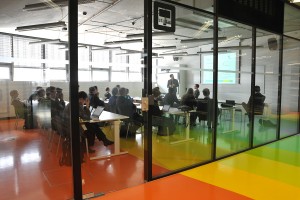| Chairs | Reinhard Grünwald |
| Day and time | Friday, March 15th, 2013; 10:00 – 13:15 |
A fierce public and political debate is going on in a number of countries about the question how the way we use energy could be made more sustainable. In order to achieve the internationally agreed 2°C-goal to limit climate change, the industrialised countries have to reduce energy related greenhouse gas emissions by at least 80 % by 2050. To accomplish this, the electricity sector has to become essentially carbon-neutral. Because the energy sector is vital for the creation of economic wealth and is very special in terms of its technological and economic framing, actor constellations (“old” vs. “new”) as well as societal perceptions and acceptance, it poses tremendous challenges for technology assessment.
In this session the issue of “energy transition” was addressed from three different angles: The first was a systems perspective: how are views of the long-term development of the energy system created (e.g. visions, scenarios, projections and prognoses) and how can they be made productive in terms of present-day decisions. Secondly, the development is not going on “all by itself”, but it is governed by a number of actors in economy and politics as well as relevant interest groups and the society at large. Their different perceptions, motives, interests and possibilities to influence decisions open up the field of “transition governance” that certainly deserves the attention of TA. The third perspective was the one directly from the “machine room”, discussing what concrete instruments and measures can be applied to steer the development in the desired direction and which technologies are developed and implemented in order to achieve this.
The abstracts of the session can be read here.
Presentations of the session:
- The Systems Perspective (scenarios and system analysis)
- M. Ornetzeder/ P. Wächter/ H. Rohracher
- B. Droste-Franke
- Actors and Governance
- J. Schippl
- H. Shiroyama/ J. Fujino/ S. Kajiki
- Instruments and Technologies
- M. Knapp/ S. Wenzel/ I. Gehrke
Innovations for a sustainable biomass utilization in the Upper Rhine Region




